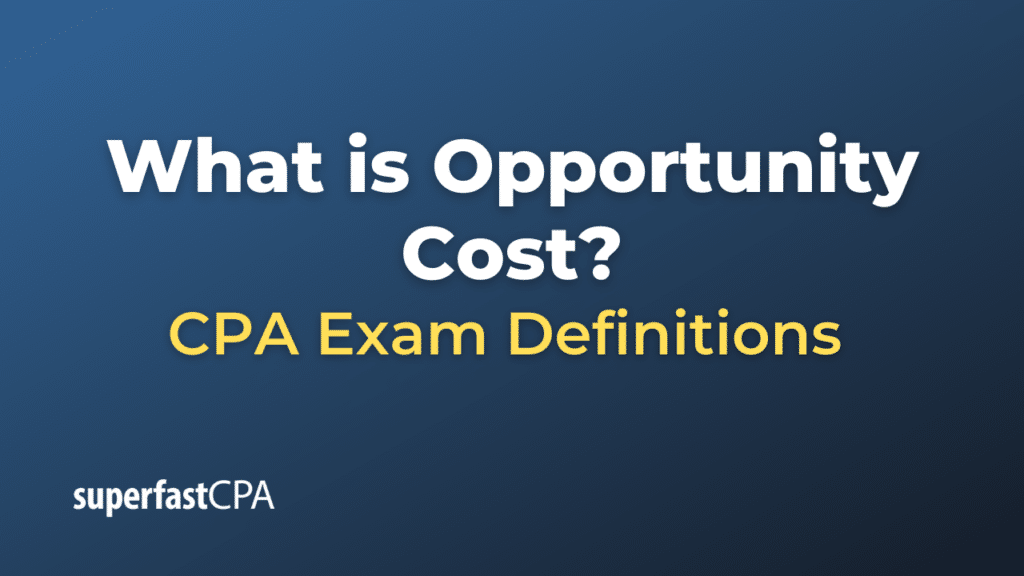Opportunity Cost
Opportunity cost is a concept in economics that refers to the potential benefit an individual, investor, or business misses out on when choosing one alternative over another. In other words, it represents the value of the next best option that one gives up.
The concept of opportunity cost is fundamental to the economic idea of scarcity: resources are limited, so deciding to use them in one way means giving up the opportunity to use them in another way. It’s an important concept because it encourages efficient use of resources and helps in decision-making processes.
For example, let’s say you have $1,000 and you have to choose between investing it in a stock or putting it in a savings account. If you choose to invest in the stock, the opportunity cost is the potential interest you could have earned by placing that money in the savings account.
Or, let’s consider it from a time perspective. If you spend two hours watching a movie, those are two hours you could have spent reading, exercising, or working. So, the opportunity cost of watching the movie is whatever benefit you might have gained from the next best use of that time.
Remember, opportunity cost does not only consider the financial aspect but also factors like time, utility, or any other benefits associated with the next best alternative.
Example of Opportunity Cost
Let’s assume you are a student deciding how to spend an hour in the evening. You have two main options:
- You could study for an exam.
- You could watch a movie.
If you choose to watch the movie, the opportunity cost is the studying you could have done for that hour. If your understanding of the exam material improves significantly with each hour of study, the opportunity cost of watching the movie might be a lower exam score.
On the other hand, if you decide to study, the opportunity cost is the enjoyment and relaxation you would have experienced from watching the movie.
The “cost” in opportunity cost represents a trade-off. Every choice you make involves a trade-off of some kind – when you choose one thing, you are simultaneously giving up something else.
The concept of opportunity cost allows you to consider these trade-offs when making a decision, by helping you understand what you may potentially lose and gain with each choice. It encourages you to consider the value of the foregone alternative, not just the chosen one.













